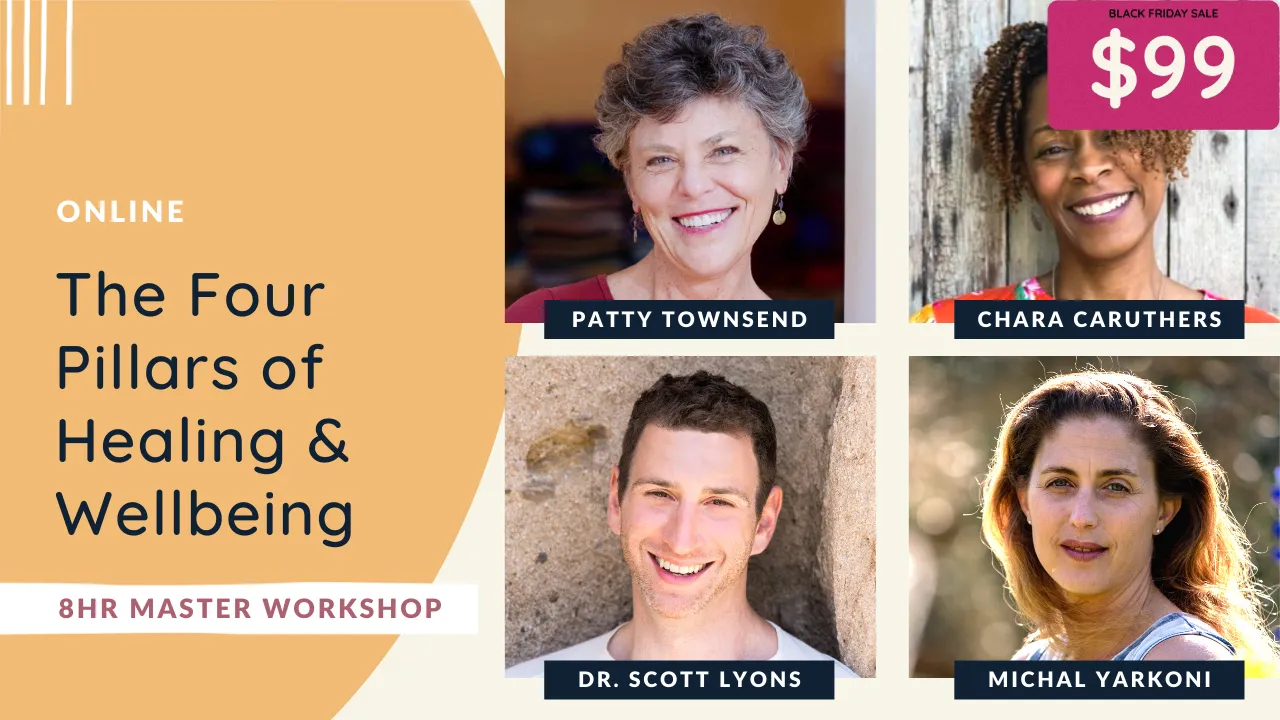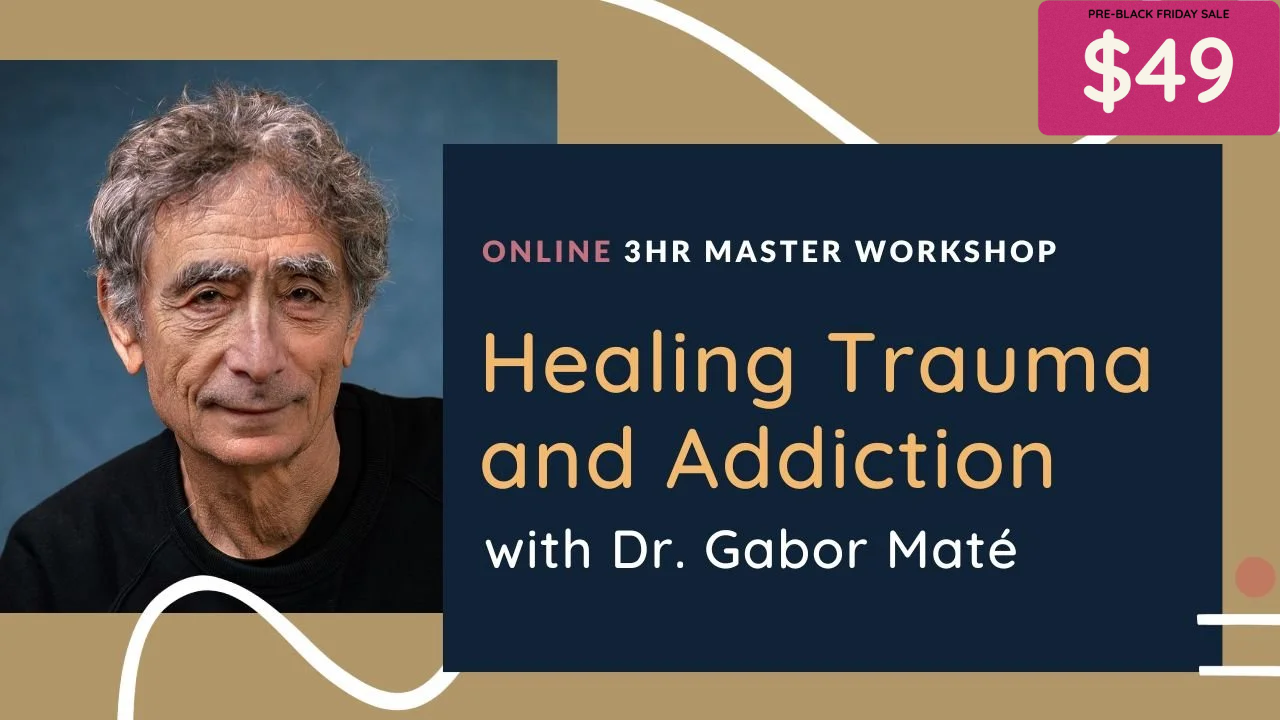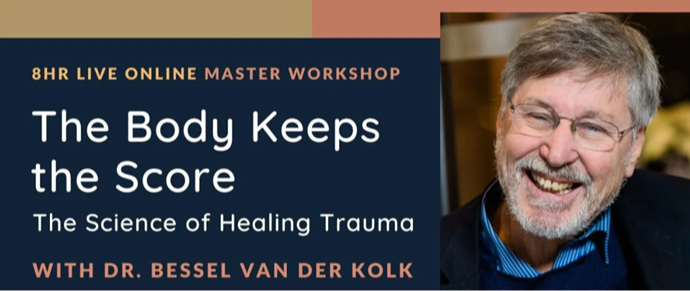The Body Keeps the Score: The Science of Healing Trauma
$187 USD
Join Dr. Bessel van der Kolk, author of The Body Keeps the Score, in this Master Workshop on neuroplasticity and trauma recovery. Learn how trauma reshapes the brain—and how body-centered practices, mindfulness, neurofeedback, and EMDR can help rewire it for resilience and healing. Discover science-backed methods to restore balance, connection, and well-being.
ADD TO CARTWHO IS THIS WORKSHOP FOR?
This workshop is designed for mental health professionals, educators, medical practitioners, bodyworkers, and anyone seeking a deeper understanding of trauma and its healing. Whether you are working with clients or navigating your own journey, these insights will expand your toolkit and your perspective.
WHAT YOU’LL LEARN
Across four dynamic sessions, Dr. van der Kolk will weave together decades of clinical experience, groundbreaking research, and case examples that bring the science to life. Each session builds on the last, offering both a deep conceptual framework and practical tools for application. In this immersive series, Dr. van der Kolk will guide participants through the essential science of trauma and recovery. You’ll learn:
-
The Neuroscience of Trauma: How trauma impacts brain structures such as the amygdala, hippocampus, and prefrontal cortex, and what this means for behavior, memory, and emotional regulation.
-
Harnessing Neuroplasticity: How the brain’s capacity for change can be leveraged to heal long-standing wounds.
-
Body-Centered Healing: Why talk therapy alone is often insufficient, and how somatic practices restore safety and presence.
-
Evidence-Based Approaches: An in-depth exploration of modalities including EMDR, neurofeedback, mindfulness, yoga, and theater-based methods that have been shown to support recovery.
-
Restoring Connection: How healing trauma is not only about reducing symptoms but about regaining joy, creativity, and the ability to fully engage with others.
About Your Teachers

DR. BESSEL VAN DER KOLK
Bessel van der Kolk, MD has spent his career studying how children and adults adapt to traumatic experiences, and has tried to translate emerging findings from pharmacology, neuroscience and attachment research to develop and study potentially effective treatments for traumatic stress in children and adults.
In 1984, he set up one of the first clinical/research centers in the US dedicated to study and treatment of traumatic stress in civilian populations, which has trained numerous researchers and clinicians specializing in the study and treatment of traumatic stress, and which has been continually funded to research the impact of traumatic stress and effective treatment interventions. He did the first studies on the effects of SSRIs on PTSD; was a member of the first neuroimaging team to investigate how trauma changes brain processes, and did the first research linking BPD and deliberate self-injury to trauma and neglect in early childhood.
Much of his research has focused on how trauma has a different impact at different stages of development, and that disruptions in care-giving systems have additional deleterious effects that need to be addressed for effective intervention. In order to promote a deeper understanding of the impact of childhood trauma and to foster the development and execution of effective treatment interventions, he initiated the process that led to the establishment of the National Child Traumatic Stress Network (NCTSN), a Congressionally mandated initiative that now funds approximately 150 centers specializing in developing effective treatment interventions, and implementing them in a wide array of settings, from juvenile detention centers to tribal agencies, nationwide.
He has focused on studying treatments that stabilize physiology, increase executive functioning and help traumatized individuals to feel fully alert to the present. This has included an NIMH funded study on EMDR and NCCAM funded study of yoga, and, in recent years, the study of neurofeedback to investigate whether attentional and perceptual systems (and the neural tracks responsible for them) can be altered by changing EEG patterns.
His efforts resulted in the establishment of Trauma Center (now the Trauma Research Foundation) that consisted of a well-trained clinical team specializing in the treatment of children and adults with histories of child maltreatment, that applied treatment models that are widely taught and implemented nationwide, a research lab that studied the effects of neurofeedback and MDMA on behavior, mood, and executive functioning, and numerous trainings nationwide to a variety of mental health professional, educators, parent groups, policy makers, and law enforcement personnel.
Other Workshops

The Four Pillars of Healing and Wellbeing
ADD TO CART
Healing Trauma and Addiction: A Holistic Approach to Recovery
ADD TO CART
An Introduction to Creating Conscious Love
ADD TO CARTFrequently Asked Questions
Who is this program designed for?
What are the dates, schedule and time commitment?
Do I need to attend live or am I able to watch recordings?
How can I interact with the instructor? Will I receive guidance?
What are the homework requirements?
Do you offer scholarships?
Do you offer refunds?
How can I access the online course and recordings?
Is this a theoretical or practical (experiential) program?
Will Continuing Education Units (CEUs) be offered?
List your practice on The Embody Lab’s Somatic Therapist & Practitioner Directory!
More somatic therapy seekers come to The Embody Lab in their search for the right therapist than to any other somatic therapy site. We’ll help your practice be seen by hundreds of thousands of potential clients seeking your services.
Join The Directory

